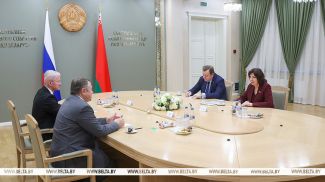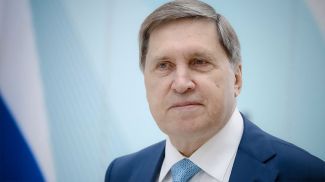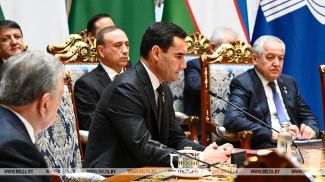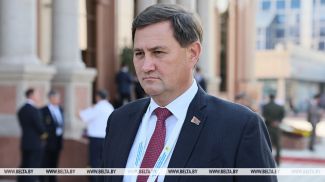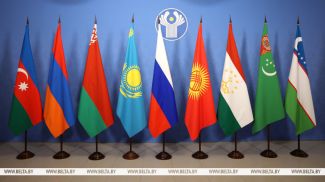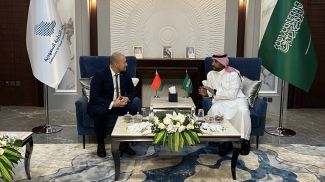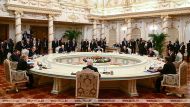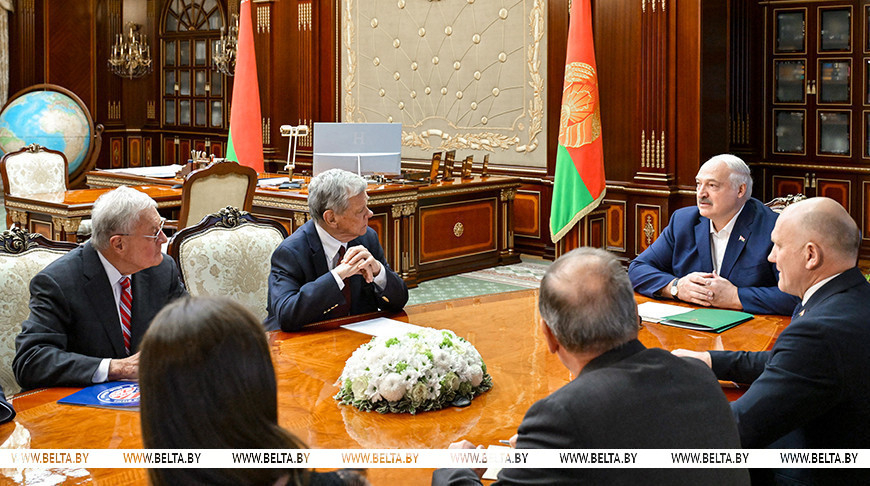
Last weekend, Belarusian President Aleksandr Lukashenko met with U.S. Special Envoy for Ukraine Keith Kellogg. This news made a lot of noise in the world media space and gave rise to many speculations. This is generally not surprising. After all, equal dialogue is becoming exotic today, and traditional diplomacy is replaced by a “twitter” one where everyone talks, but does not listen.
Is it any wonder that with such an approach, our world is on the brink of collapse? One thing is good: there are those in the political arena who are trying to pull us away from the edge and return the balance to international relations. We understand that. What is the world thinking about it?
Unless we are wise and fair
The meeting between Lukashenko and Kellogg was announced in advance by the Western media. The information was spread by anonymous sources in the White House. They said that while the exact agenda of the meeting was unclear, President Donald Trump’s special envoy saw it as a step to break the deadlock in peace talks to resolve the conflict between Russia and Ukraine.
The Western media stressed that the Trump administration had resumed efforts to establish working relations with Belarus, and Kellogg could become the highest-ranking official in the United States to visit Minsk in recent years.
Yet, when the video of the meeting between Lukashenko and Kellogg appeared online, it caused quite a stir. In addition to the very fact of the meeting, the Western media drew attention to the friendly atmosphere, warm greetings and some exchanges between the participants of the delegations indicating that the visit was not spontaneous, and contacts between the two countries were maintained before.
The talks lasted for six and a half hours, which proved that the parties had something to discuss. Natalya Eismont, Press Secretary of the President of Belarus, told The New York Times said that the talks covered American and European sanctions on Belarus, the conflicts in Ukraine and the Middle East, as well as Belarus’ relations with Russia and China.
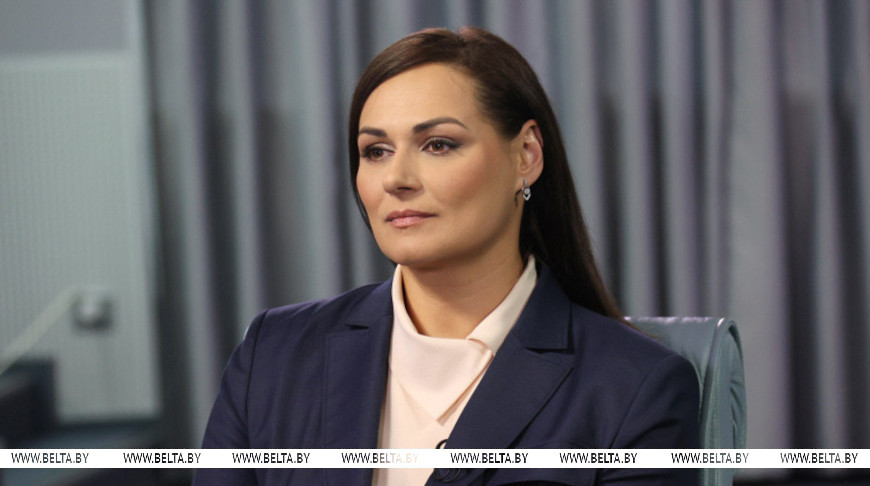
Natalya Eismont
The New York Times described Lukashenko as Russia’s closest ally and a “central figure in a decades long struggle between East and West in the former Soviet Union”. Kellogg’s visit signaled a sharp turn away from the Biden administration’s policy of trying to isolate and punish Belarus by tightening economic sanctions.
As for the goals of the current U.S. administration, The New York Times writes they lie in the plane of the Ukrainian conflict. It is unlikely that Washington expects to loosen the close partnership between Minsk and Moscow. “Kellogg’s goals appear less ambitious,” The New York Times writes. “They are focused on securing Lukashenko’s help in a possible peace deal between Russia and Ukraine.”
“We live in a very dangerous time, when the crises we face can sharply escalate, grow, if we are not wise and fair,” The New York Times cited Kellogg as saying during the talks.
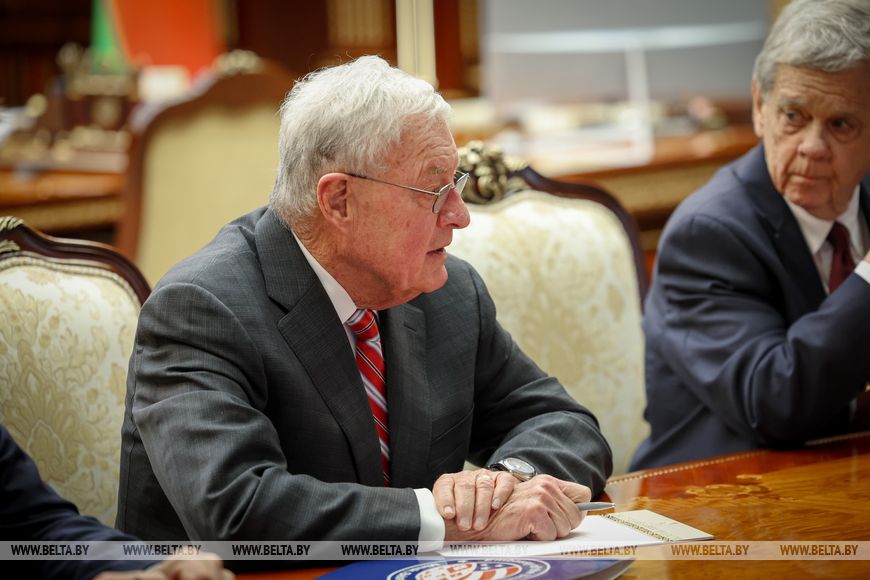
Keith Kellogg
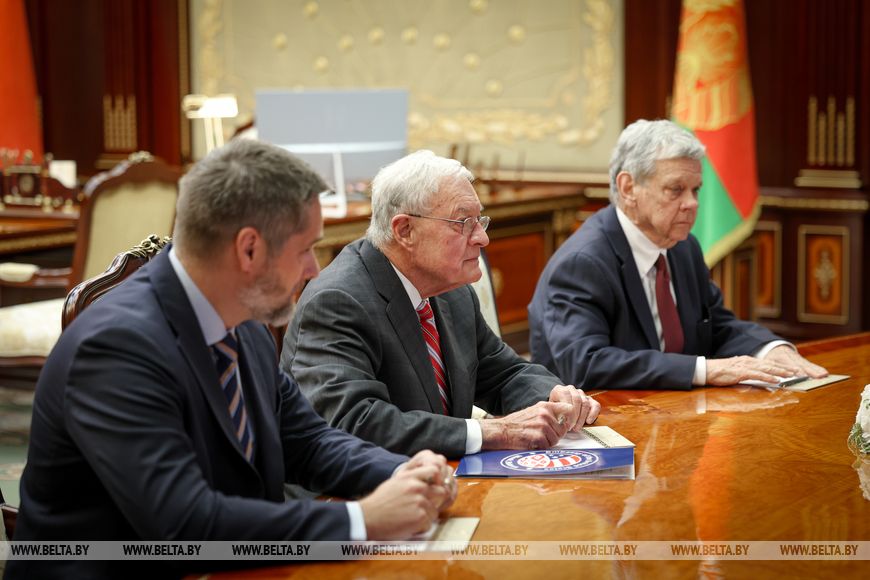
The Belarusian leader replied: “You will be completely safe on the territory of Belarus and there will be no escalation, not only in Belarus but also around us,” Lukashenko said.
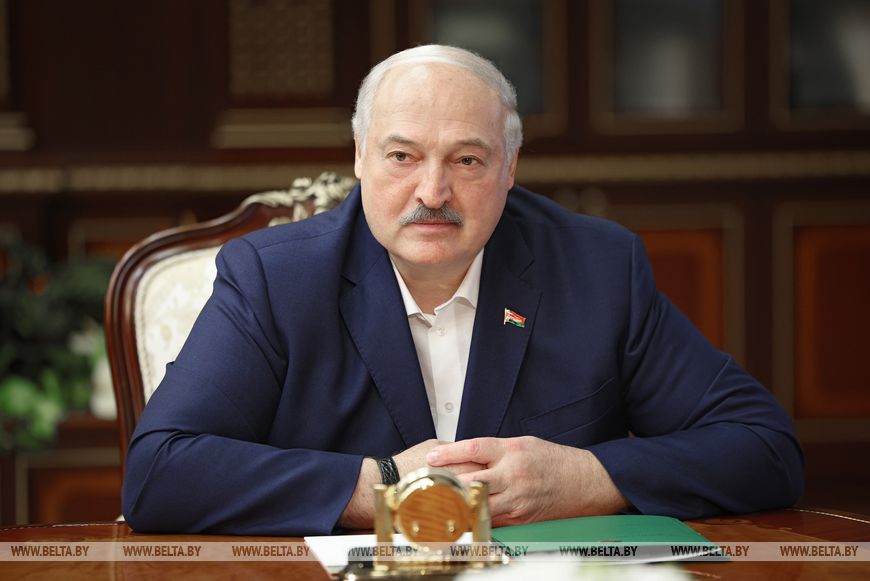
Aleksandr Lukashenko
At the crossroads of the U.S.-Russia-China triangle
The New York Times also cites the opinion of Slovak political scientist and former diplomat Balazs Jarabik, who described Trump’s decision to send his special envoy to Belarus as a “serious diplomatic upgrade” based on the recognition of Minsk “as a relevant actor in regional diplomacy”. He noted that the USA and Belarus have a shared interest in ending the war in Ukraine.
Balazs Jarabik posted a more detailed comment in connection with Kellogg’s visit to Belarus on his X account. “What we know about the Lukashenko–Kellogg talks: they were long (6.5 hours), wide-ranging, but still focused primarily on one issue—Russia’s war in Ukraine,” Jarabik wrote. He believes that the meeting effectively opened a “new political/diplomatic track toward Moscow”.
The political scientist also tries to explain why Washington is seeking support from Minsk in the matter. According to Jarabik, this is because Lukashenko is one of the few leaders who regularly communicate with Russian President Vladimir Putin, and at the same time shows a strong interest in de-escalation.
“Belarus has already facilitated quiet humanitarian steps, in particular prisoner swaps. This role is rarely recognized, but it has been consistent. The USA now also recognizes Belarus as a potential channel for political messages,” the political scientist said.
It is worth noting that Balazs Jarabik, like many Western political analysts, oversimplifies reality. Reducing Belarus’ role to merely a channel for political messaging is, at the very least, illogical, especially considering that Moscow and Washington have already been establishing direct dialogue for several months.
At the same time, the political analyst attempts to assess the Minsk talks against the backdrop of escalating conflict in the Middle East. Balazs Jarabik believes that trade routes are at the center of U.S. interests. Given the rising tensions in the region, Belarus’ transit potential is gaining importance. “Belarus, through which the China–EU railway route passes, is back in the game - not only for the United States or Russia, but also for China’s logistics across Eurasia,” the analyst writes.
In conclusion, Balazs Jarabik notes that Kellogg’s visit was not solely about the situation in Ukraine. It should be viewed more broadly, within the U.S.–Russia–China triangle. In this context, engagement with Belarus means recognition that Minsk is not isolated. “This is a strategic turning point in the emerging competition for Eurasia,” he believes.
Balazs Jarabik stressed that Kellogg’s visit should not be expected to bring breakthroughs, but rather forward movement. Each party has its own objectives. In this context, it will be interesting to see how the EU responds. “The window is narrow, but it is opening. Will the EU step in or stand back?” the political analyst writes, leaving the question open.
Yesterday’s unpopular position, today’s trend
The talks between Lukashenko and Kellogg were also commented on social media platform X by American political analyst and research fellow in the Quincy Institute's Eurasia Program Mark Episkopos. Notably, this month he published an analytical article on Minsk–Washington relations in the U.S. magazine The National Interest, which is published by the Center for the National Interest (a think tank focused on international relations and public policy, with ties to moderate Republican circles in the United States).
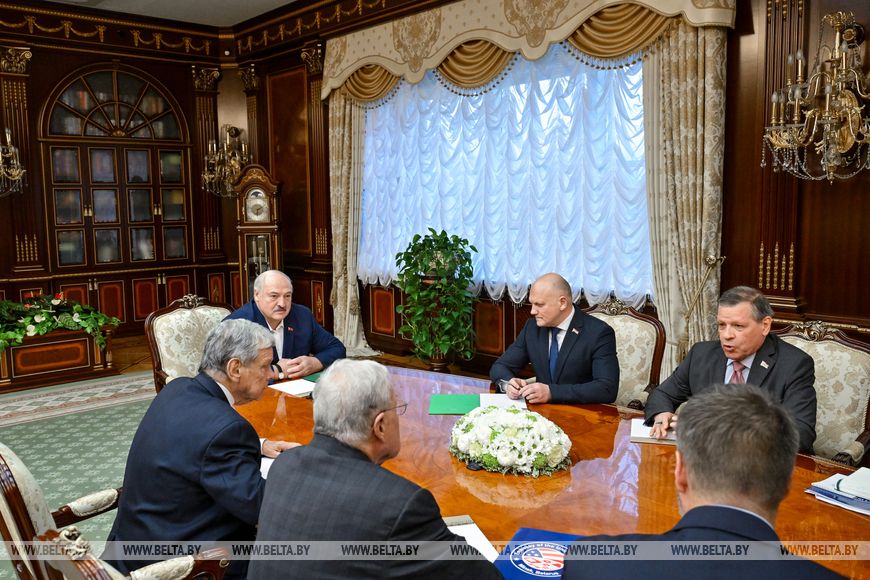
In his article, Mark Episkopos criticized the policy of political pressure and sanctions against Belarus, calling it “punitive approach yielded none of its desired results”. “Building a constructive relationship with Belarus, one of the few remaining regional swing players between Russia and the West, would generate a substantial windfall for security and stability in Eastern Europe at a time when the United States is seeking to prioritize its presence in other parts of the world, notably the Indo-Pacific,” he wrote.
The author emphasized Belarus’ geopolitical importance. “The ‘Belarusian balcony’ is a key staging ground between NATO and Russia, making it a security actor of outsized importance in questions of conventional and nuclear force posture. Its location likewise allows it to act as a potentially significant economic hub between East and West,” the analyst noted.
Mark Episkopos welcomed Kellogg’s visit to Minsk, calling it historic. “Congratulations to Gen Kellogg on a historic visit to Minsk with a message of US-Belarus reengagement, something we have worked towards, including back when it was quite an unpopular position, for years. I am proud to continue supporting this process over the long haul,” the analyst wrote on X.
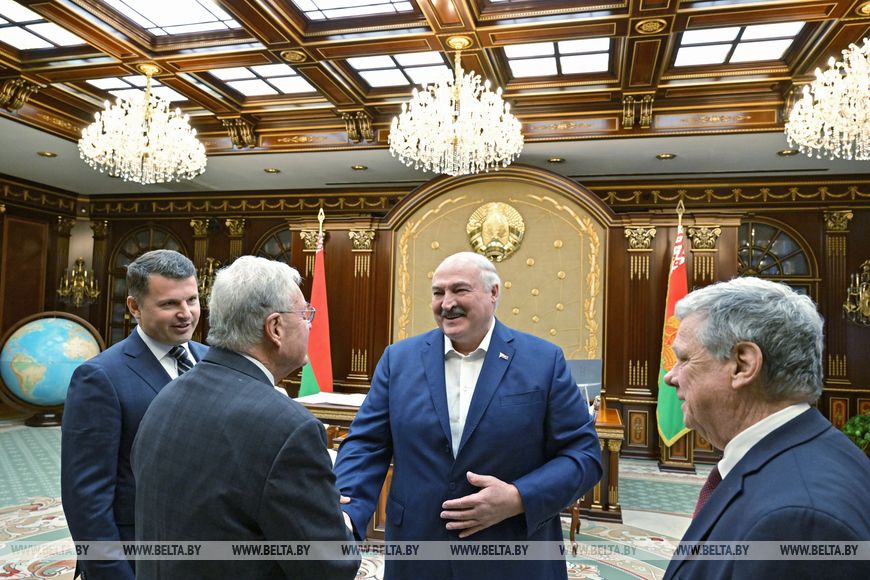
USA’s ‘junior partners’ brandish their arms
It is not only in the West that the recent talks between Lukashenko and Kellogg are being analyzed. Some intriguing perspectives appear in an analytical article published by the Pakistani outlet Voice of East. The piece suggests that the U.S. general’s visit should be viewed within a regional military-strategic context.
“Ukraine has been saber-rattling along the Belarusian border since last summer, tensions with Poland have also escalated, Warsaw rejected Minsk’s proposal for mutual military inspections, Zelensky began fear-mongering about fall’s Zapad 2025 drills with Russia,” the article notes. “These factors combined to create an opening for American-Belarusian talks since the United States is Ukraine and Poland’s shared senior partner and plays a major role in the ongoing conflict.”
The article also points out that both Minsk and Washington have certain expectations from these contacts. ““Belarus therefore expects the USA to clarify what Ukraine and Poland aim to achieve through their (coordinated?) pressure along its borders and restrain them [Kiev and Warsaw] if they have aggressive intentions,” the article suggests.
Meanwhile, it’s important for the United States of America to clarify Belarus’ stance on security matters. Belarus’ mutual defense agreement with Russia and the deployment of tactical nuclear weapons in the Belarusian territory make Minsk extremely important in the changing European security architecture, the article says.
At the same time, the publication emphasizes that the situation around Belarus will affect relations between NATO and Russia. They can either worsen if Belarus is attacked by “junior U.S. partners” or, on the contrary, can de-escalate if tensions along Belarus’ borders with Poland and Ukraine ease.
Belarus may become “the key to easing the security dilemma between NATO and Russia” after the Ukrainian conflict ends, the publication concludes.
By the way, Poland
It seems that Kellogg’s visit to Minsk did not cause as much excitement in any other country as it did in Poland. The Belarus president’s decision to pardon 14 convicts due to humanitarian considerations added to the excitement. Most of them are foreigners, including three citizens of Poland as well as several Belarusians convicted of extremist and terrorist activities.
As noted by Chairman of Belarus’ KGB Ivan Tertel, the decision to pardon them was a gesture of goodwill on the part of the head of state. “I think that this gesture, which the head of state has made towards our neighbors, despite their not entirely neighborly and balanced policy (and not for the benefit of their nations), and the messages that our head of state has sent them will be heard and we will see the same approach - a neighborly one - on their part. They say that hope dies last. Let’s hope that this is not the case,” Ivan Tertel said.
The Polish Institute of International Affairs (PISM) drew attention to Minsk’s steps. “Officially, the release of the prisoners was a gesture of goodwill on the part of Lukashenko towards neighboring countries and the USA,” the think tank said in a publication.

As for relations between the USA and Belarus, PISM believes that Kellogg’s visit was a sign of a departure from the Biden administration’s policy of trying to isolate Belarus by stepping up economic sanctions. “It is also a demonstration of the return to the policy of Trump’s first administration, which saw Belarus as an important regional player, including in the field of security, and sought to strengthen its position with regard to Russia through good contacts with the Belarusian authorities. This is why we can expect an improvement in relations with the USA in the near future as well as further attempts by Belarus to improve relations with other Western countries,” the Polish Institute of International Affairs predicts.
At the same time, PISM is convinced that no changes in Belarus’ foreign policy should be expected: Minsk will continue maintain close alliance with Russia and will strengthen political and economic ties with China.
The Polish publication Niezalezny Dziennik Polityczny (NDP) writes that Poland would also do well to strengthen ties with partners that are beneficial to it, including Belarus.
The other day the publication released a large analytical article on failed attempts of the Polish leadership to install a puppet government in Minsk. The author of the article, Hanna Kramer, talks about Poland’s destructive policy towards Belarus and its sponsorship of various structures hired by Warsaw to play the role of the “Belarusian opposition in exile.”
“Poland has been one of the main sponsors of the Belarusian opposition for many years. Significant funds are allocated to support ‘democratic movements’, although the exact amounts are difficult to determine due to the lack of complete transparency. For example, in 2020 the European Union, including Poland, allocated €53 million to support the so-called repression victims, the development of democratic movements, and the fight against the pandemic in Belarus. Poland actively provided asylum to Belarusian opposition figures, which, according to the original concept, was part of a plan designed to destabilize the country,” the article says.
But the plan failed and the “democratic movements” remain on Poland’s balance sheet. They cost Polish taxpayers tens of millions of zlotys every year. “Under the slogan of supporting democracy in Belarus, these organizations receive funds from the Polish government’s budget as well as from other EU countries. However, their efficiency and legitimacy are increasingly being called into question,” Kramer writes.
“In theory, this is an investment in the future of a ‘democratic Belarus’ that could become a stable partner for Poland and the EU,” the author of the article continues. “However, in practice, consequences of these measures are insignificant and this money could be spent on immediate needs of Poles such as improving healthcare, education, or infrastructure.”
Kramer notes that the Polish government’s plan to overthrow the government in Belarus has finally failed. And Lukashenko’s recent decision to grant pardons shows that the Belarusian leader’s position remains strong and that further support for destructive forces on the part of Warsaw is becoming meaningless.
In these conditions Poland should consider changing its strategy and start building mutually beneficial relations with Minsk, Kramer believes. "Instead of throwing money down the drain, Poland should focus on a pragmatic policy towards Belarus and on establishing neutral diplomatic relations with the Belarusian authorities. Especially since the USA’s special representative clearly pointed it out as he visited Belarus last Saturday,” the Polish journalist concludes.
By Vita Khanatayeva,
BelTA




